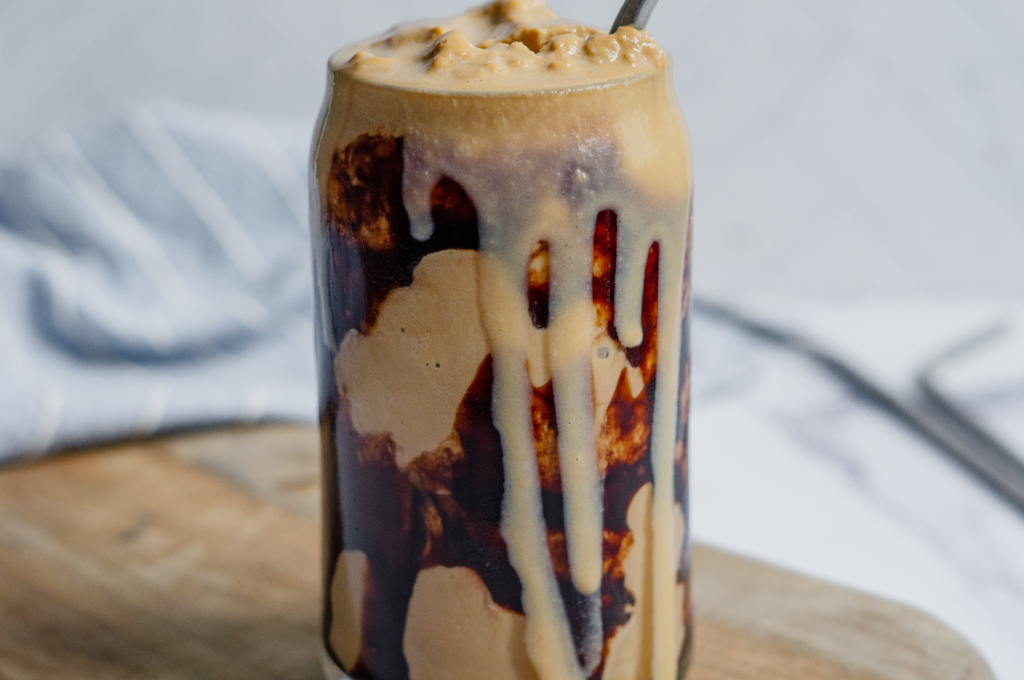Ben Franklin was one of the most accomplished figures this world has ever seen. He was an entrepreneur, scholar, politician, inventor, librarian, and master at the politics of people.
Franklin grew up dirt poor. His parents could only pay for 2 years of schooling, then he was forced to become a printing apprentice to his older brother James. For those who don’t know, working as a printing apprentice in the 1700’s wasn’t a glamorous gig. It was long hours in a hot shop, lifting heavy print presses, and carrying around massive stacks of papers. Ben didn’t care though.
It didn’t take long for Ben to establish himself as a well read individual. After all, he worked in a print shop. It was functionally the equivalent to being the only kid in your neighborhood who had access to the Internet. It didn’t take long for his reputation as a genius and badass to precede him — because what else are you going to do all day long if you work in a print shop?
It was in those books that Ben might’ve learned one of the most counter-intuitive tricks of human nature.
Early in his political career, there was one particular instance where he had a serious rival – a rival who disliked Ben. This fellow politician had grown up in a similar area to Franklin and they had known each other for years thanks to various clubs, societies, and jobs they had held. Franklin also knew that if he was to actually pursue his dreams of holding higher positions within the government, he needed to turn this enemy into an ally.
By this point, Franklin’s reputation was widely known. Not only did his rival know him from their days as kids, but he knew about Ben’s reputation for how smart and well-read he was.
Ben knew he needed to flip this rival into a supporter one way or another, and better sooner than later. So he pulled off one of the most masterful political moves ever made and pretended to need help. Ben, who had access to millions of books, asked his political rival, a man of great wealth, if he could borrow a very rare book.
Now as the founder of the first subscription library, Ben could’ve tracked down this book if he needed to. The book wasn’t the point though. The point was getting his rival to like him — and it worked. The next time they saw each other, Ben and his rival cordially spoke together for the first time in quite awhile.
That political rival went on to become a lifelong supporter of Franklin. All thanks to a book.
This phenomenon became known as The Ben Franklin Effect: it states you like people you do favors for, and hate people you’re mean to vs. the conventional wisdom that we do favors because we like people, and do mean things because we don’t like that person.
Psychologists think the entire reason you like people you do favors for is you don’t want to see yourself in an unfavorable light. If you’re doing favors for someone, you think “well I must like them, why else would I be doing this?”
You find a way to justify the favor, and your attitude towards them conforms.
Here’s a weird thought: you have very little control over your attitude. Attitude is the beliefs and feelings you have towards certain people, topics, ideas, etc. It has been shaped by years and years of experiences, thoughts, observations, and actions. It’s pretty easy to bring to the forefront of your mind. Crunchy peanut butter.
See that? You couldn’t control it, but your attitude towards what is obviously the best kind of peanut butter came surging forward as soon as you read those words. Let’s try it again; key lime pie.
Bam. You’ve got no control over it, but the inner workings of your brain are telling you exactly how you feel about the sumptuous tangy and sweet goodness that is key lime pie.
We form attitudes thanks to actions, which end up as beliefs. We start off as this huge blank slab of marble, and slowly our actions over the course of our lifetime chisel away. What’s left is our attitude.
Anyone who has ever been fat-shamed or told they need to go diet as a kid can typically attest to this. All too often, what gets us to a place where we’re unhappy with our weight isn’t so much what we do as an adult — though that’s obviously important. But the decisions we’ve made as an adult are influenced by far more in our past through our beliefs and personal history than most of us recognize.
We all know what we need to do to lose weight, get healthier, and feel better. We know avoiding processed foods, eating vegetables, lean proteins, exercising, and having occasional indulgences is the best thing for our health.
Health isn’t complicated. So why do we treat it like it is?
I’m fond of saying that the phrase “human error” exists for a reason — which is true. Humans are mistake machines. We make mistakes all the time and we’re usually aware of these mistakes. It’s our brain’s job of finding ways to justify these mistakes, and this is a job the brain happens to be great at. Dieting mistakes are one of the best examples of this.
When was the last time you started a new diet? Day 1 you were probably gung-ho. Feel any different on day 15? Were you even still on it?
We all feel anxiety over screwing up our diet at some point, that’s natural. What’s also natural is we lower that feeling of anxiety by creating a fantasy world to salvage our self-esteem and justify our mistakes, and then let that fantasy world become reality.
How that actually happens inside the gooey gunk of our brain is we reach a painful conclusion about who we really are, usually thanks to a mistake of some sort. And that mistake and the subsequent psychological pain gets resolved by amending the way we view the world and construct our narrative of the world to make things just a little less painful.
Can you hack your way past attitude into diet success?
Pretending is power. We’re damn good at pretending and justifying, so use this skill to your advantage. Pretend you’re a successful dieter or already super fit. Do things that super fit people do, and justify them with the excuse a super fit person would use.
How do you do this?
Do you remember the movie Step Brothers? You know that part at the end, where they’re all at the Catalina Wine Mixer and Richard Jenkins’ character recognizes that nothing is going according to plan and he needs to change something, STAT.
So what does he do? He takes matters into his own hands and becomes the hero of the moment with his mantra: “Don’t lose your dinosaur.”
Jenkins character is telling a dumbfounded Will Ferrell and John C. Reilly that the most important thing they could possibly do, at that moment, is be who they are. Even if that means pretending a little bit along the way.
In this example, you might not be a dinosaur and you might not be at the Catalina Wine Mixer, but the lessons are still the same.
“We are what we pretend to be, so we must be careful about what we pretend to be.” – Kurt Vonnegut
If you’ve struggled mightily with sticking to your diet in the past, if the comments people make tend to hold you back, or you find that you can’t seem to stop falling on and off the wagon — it’s because you haven’t given yourself a real and true chance to succeed yet. And in the beginning, you might need to pretend your way there. That’s okay. You have to dive headfirst into pretending to be a dieter. This doesn’t always apply to eating, either. It applies to how they dress, how they interact at social gatherings, and how they spend their free time.
This is important, because you won’t be making up irrational stories to justify why you’re failing at your diet. You’re making up a story about you being a successful dieter. You’re changing the narrative. Over time you’ll have pretended yourself into a real-life dieter.
Take it one step further.
Immerse yourself into a pack of dieters. Going it alone is damn near impossible, and not because you’re weak. In the natural world, for so long being alone = death for so many of our ancestors. If our ancestors got banished from their groups, it completely ruined them and might as well have been a death sentence.
This is the same reason that getting left out of other peoples social plans causes a shot of pain straight to the heart. It’s bringing that deep fear of being ostracized from the group right back to reality. But on the other side of that coin, you can leverage the power of groups to make things easier on you.
If you can find a group — join it. Go immerse yourself into a group of people who have already made the transition to pretending they were successful dieters to living it, just like Stronger U.
(Speaking of, the Stronger U Book Club is reading James Clear’s new book Atomic Habits this month — which would be a perfect complement to much of what we’ve talked about in this blog. So please come read along with us!)
Because while it won’t be easy in the beginning, it will be worth it. Groups of like-minded individuals help you with accountability, consistency, and discipline. They make the road of change just a little bit easier because they provide a framework and a blueprint you can follow. Plus the community support is unreal. I mean, imagine how a pack of 6-year-old T-Rex’s was when you were little. That was powerful. Nobody would dare question you, because if they did they’d be torn to shreds. It’s the same thing when you immerse yourself into a community of successful dieters. Nobody questions you because that’s now who you are.
It’s safe to say Ben Franklin wasn’t always the highly accomplished man we know today. He had his fair share of failures. It’s also safe to say he probably knew all about pretending, and “fake it till you make it”. He likely employed these very tools into his own personal development arsenal, until he had pretended his way right into the man responsible for so many things that we know and love today. Channel your inner Ben Franklin and get to pretending.









